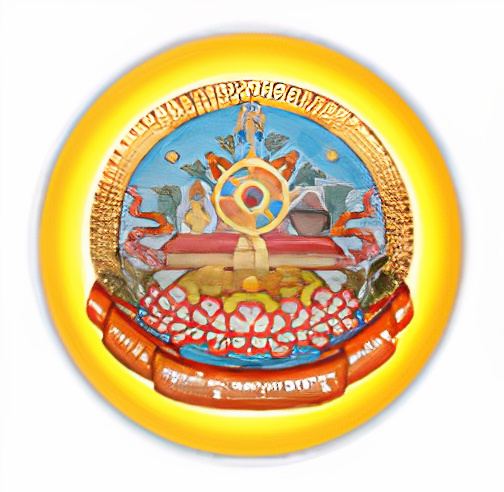Sed Gyued Monastery
Gyapshi (400 Offering Obstacles and Clearing Prayer) 四百供法会
Gyapshi (400 Offering Obstacles and Clearing Prayer) 四百供法会
Couldn't load pickup availability
Gyashi / Gyab-zhi is one of the most widely practiced ceremonies in Tibetan Buddhism.
The ritual involves four sets of 100 offerings:
- 100 butter lamps to eradicate delusion;
- 100 ritual cakes (tor-ma) to overcome desires.
- 100 human effigies (made of dough) to subdue the demon of death and
- 100 tsa-tsa (stamped clay votive images) to overcome tainted aggregates.
The intention of the Four Hundred Offerings is to aid in overcoming inauspiciousness, disease, untimely death, and challenging supernatural forces.
When sentient beings are harmed by the four evil forces, Buddha hooked them on the tip of his fingers and made them take pledge not to harm sentient beings and in return promised to make offerings to them. By making these offerings and reading out the prayers of truth of the Buddha, it reminds the negative forces of the pledge they made in Buddha's presence, to help sentient beings to overcome or decrease obstacles etc.
It is a powerful extermination ritual based on Buddha Shakyamuni’s subdual of the four classes of evils (mara), non-human spirits, death, afflictive thoughts and emotions, and a psycho-physical basis of a Karmic being through his wisdom and compassion.
In an extensive systematised form, the ritual makes use of 100 sets each of four religious items, sacred statuettes (satchaya), butter lamps (mar-mey), food offerings (torma), and dough figurines (lü). These four sets variously represent enlightened beings, pure offerings, ritual cakes, and ransom effigies.
The “Four Hundred” ritual will include refuge-taking, bodhicitta cultivation, meditation on emptiness, visualization of deities, extending of food offerings or Tormas to enlightened beings, seeking of blessings, visualization of the classes of evil spirits, granting of Torma, sending off of ransom effigies, exterminating of all evil spirits, and chanting of prayer for auspicious conditions to arise.
Unlike normative rituals, this ritual is slightly peculiar involves a series of visualization of malignant negative spirits and non-humans such as Bhuta, Rakshasa, Yakshasa, Kinnara and so forth. Through recitation of mantra, meditation on emptiness and generation of compassion for them, granting of Torma, and sending of effigies, the monk ritualist seeks to pacify and subdue these malignant spirits and non-humans.
Together with the sending off of effigies, the monk ritualist will also visualize extermination and purging of all negative factors such as sickness and diseases; untimely death; loss and failures; disputes and dissent; wars; and natural and man-made calamities. The ritual ends with a prayer for auspiciousness to herald a new life free of impediments and harms and filled with virtues and merits.
Gyabshi is one of the most potent and elaborate pujas for situations where nothing else works. It calls on the blessings and protection of Yamantaka, Setrap and Buddha Shakyamuni and is coupled with extensive offerings and rituals to generate an overwhelming amount of positive energy to clear negativities and dangerous obstacles of health, financial or even supernatural causes.
It is recommended for situations which have dangerous or even life-threatening consequences such as severe illnesses, financial or legal issues, physical threats and dangerous spirit disturbances.
Benefits:
- Removes the most severe obstacles affecting your personal or business life.
- Overcomes life-threatening health situations.
- Relieves the direst financial straits.
- Protects from the most malevolent supernatural beings, black magic and curses.
- Purifies heavy negative karma.
- Generates positive energy and spiritual merits.
One of the most elaborate and complicated of obstacle-clearing pujas, Gyabshi is recommended when nothing else works. Literally translated as “400 offerings”, it traditionally involved the offering of 100 stupas, 100 ritual cakes, 100 lights and 100 men, and could only be done by the wealthiest of nobility due to the tremendous expense involved. Fortunately, this powerful puja is now available in abbreviated form today.
The puja requests Buddha Shakyamuni to “talk” to and bless the spirits before we send them away. Offerings include 100 stupas, 100 candles and 200 tormas to generate tremendous merit for sponsors and to appease the spirits or obstacle-makers.


